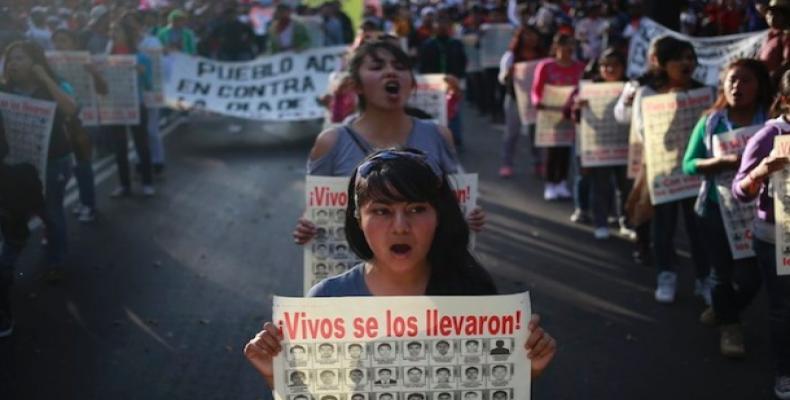Mexico City, January 22 (RHC-EFE) – The possibility of identifying 16 charred remains that could belong to the students who went missing in September in southern Mexico was reduced after forensic teams in Austria were unable to find enough genetic material to analyze them using routine methods, authorities said on Tuesday.
These methods could not be used on account of the excessive heat the remains were subjected to when the bodies were burnt by members of a drug cartel to which the students were turned over to by police.
Now experts from the forensics institute at Innsbruck Medical University will be using a technique, known as Massive Parallel Sequencing, considered more promising but also riskier.
The Mexican Attorney General’s Office announced Tuesday that it had agreed to the new technique, the results of which could take at least three months, and whose main risk is that DNA extracts could be consumed in the process without obtaining any additional results.
“We are talking about the fact that (with this method) practically nothing would be left, that’s going to have an impact on the victims,” protested Vidulfo Rosales, a lawyer representing families of the missing students, on finding out about the attorney general’s announcement through the media.
Meanwhile, Attorney General Jesus Murillo said that the forensic results from Innsbruck did not weaken the investigation into the disappearance of the students.
The fact that medical examiners have confirmed the identity of one of the missing young men from the remains found “is clear proof that one of the students was killed,” but “it is not the only one, there a lot more (evidence),” he said.
In December, the Innsbruck institute confirmed that one of the remains that the Mexican government had handed over to them corresponded to Alexander Mora, one of 43 students from the Normal Rural School of Ayotzinapa who went missing on September 26th last year.
Chances Dim of Identifying Remains of Possible Mexican Students

Related Articles
Commentaries
MAKE A COMMENT
All fields requiredMore Views
- Cuba rejects U.S. decision to imprison migrants at Guantanamo Naval Base
- Leñadores lose again in Baseball Series of the Americas
- Paramount could settle in 60 Minutes lawsuit as major networks bow to Trump
- Cuban Deputy Minister of Culture begins working visit to Seychelles
- U.S. Pentagon agency pauses celebrations for Martin Luther King Jr. Day, Black History Month and holidays celebrating equity and inclusion

